Berry and Potato Pathology

The Berry and Potato Pathology (BPP) program’s focus is to develop novel approaches for management of diseases of blueberries and potatoes, as well as other small fruits produced in Northwestern Washington and the Pacific Northwest.
Entomology
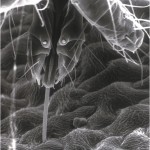
Entomology research and extension activities are focused toward the facilitation and implementation of ecologically based integrated pest management to economically control arthropod pests of the above-mentioned agricultural commodities through selective pesticides, augmentative releases and conservation of predatory mites and parasitic wasps when deemed appropriate.
Forestry Extension

The Forestry Extension program was added in 2022 and uses various forms of communication—including social media, webinars, popular and peer-reviewed publications, in-person visits, and workshops—to help educate stakeholders about forest health, invasive species and forest management in Washington.
Hard Cider
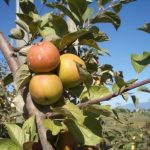
The cider research program was established at WSU Mount Vernon NWREC in 1979 with six cider apple varieties. Today we have more than 65 varieties and are evaluating cultivar performance, orchard establishment, and mechanical pruning and harvest.
Small Fruit Horticulture
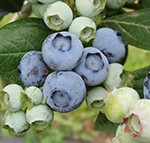
The Small Fruit Horticulture (SFH) program conducts physiological and production-oriented research that helps ensure the productivity and quality of small fruit crops, while ensuring the health of adjacent natural resources in the Pacific Northwest. Crops of emphasis include red raspberry, blueberry, and strawberry.
Soil Health
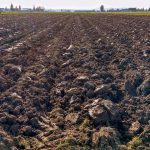
The Soil Health program works across cropping systems to study soil management strategies that improve biological, chemical, and physical soil properties related to crop productivity and system resilience.
Soils & Water
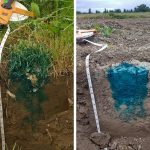
The Soils & Water program studies soil-plant-water relationships, soil fertility, and water-nutrient interactions with the goals of managing soils to improve water relations and managing water and nutrients to optimize soil processes, plant productivity, and environmental benefits.
WSU Breadlab

WSU Breadlab is an integral part of the Washington State University Mount Vernon Plant Breeding Program, which studies the diversity of locally grown grains to determine those that perform well for farmers, and that are most suitable for craft baking, malting, brewing, distilling, and other culinary creations. Professional bakers and chefs analyze and test their whole grain products under the technical guidance of WSU Breadlab Director and wheat breeder Dr. Stephen Jones.
Vegetable Horticulture
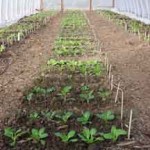
The Vegetable Horticulture Program is focused on developing, testing and promoting high value, organic and sustainable vegetable production systems. The program contributes to the WSU Mount Vernon NWREC’s commitment to explore and create new agricultural products and systems that will be economically viable in a changing world. Through our program we have developed new information for numerous vegetable crops including edamame, niche market dry beans, wasabi, baby corn, bamboo, icebox watermelon, winter-grown lettuce, and high-tunnel tomatoes.
Vegetable Seed Pathology
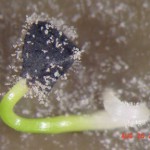
The Vegetable Seed Pathology program focuses on diseases that affect small-seeded vegetable seed crops grown in the Pacific Northwest USA. These high value, high risk seed crops produce up to 50% of the US supply & 20-50% of the world supply of seed for ~35 vegetables. Approximately 90 countries import vegetable seed from this region. The vegetable seed pathology program helps contribute towards a sustainable and secure food supply by providing research and outreach on the etiology, biology, epidemiology, and management of diseases caused by fungal, viral, and bacterial pathogens of these crops.
Weed Science
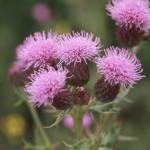
The Weed Science program at the WSU Mount Vernon NWREC is focused on providing management solutions for problem weeds in western Washington. Controlling any one of the dozens of non-native weedy species in this region in any particular crop or in forest or rangelands is difficult, but control of all using any single herbicide or other weed control tactic is impossible. Consequently, weed control research at WSU Mount Vernon has centered on managing a changing weed spectrum through an integrated weed management strategy, including chemical, cultural, mechanical, and biological methods.